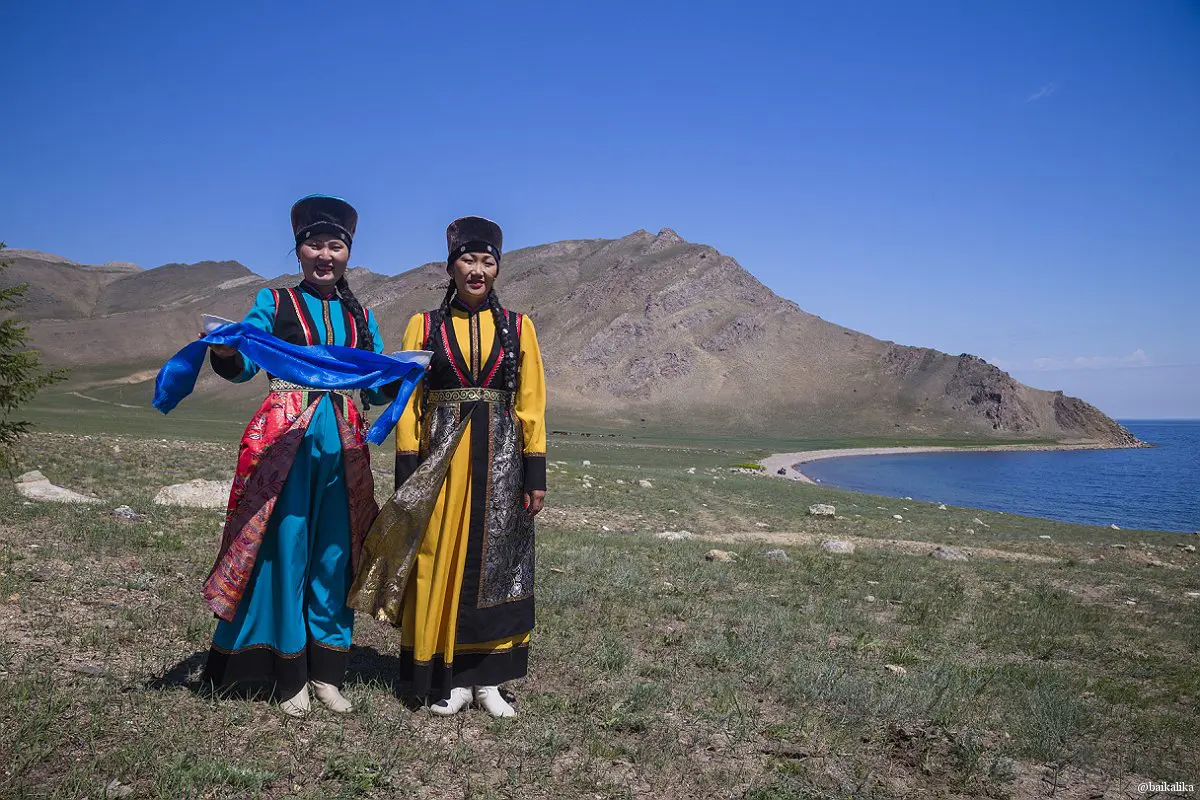The Talking Phrasebook Series presents useful phrases and words in side-by-side translation and with audio files specifically geared to help students work on listening skills and pronunciation. Each entry below, divided by category, features an English word or phrase in the left column and its Buryat translation in the right. The Buryat is presented in the Latin alphabet on top and in Cyrillic transliteration below that.
In the center column for each row is a play button. The recorded file will feature first English, then the Buryat in three versions: one slow, one with each syllable broken out, and a last version that will be spoken as it might be overheard in a conversation between native speakers.
Interested in learning more about the Buryat? Access our full Buryat archives here.
Interesting Facts about Buryat
- There is no grammatical gender in Buryat, no separate adjectives for “he,” “she,” and “it,” and no separate adjectives for “male” and “female” (although the noun forms of “man” and “woman” are sometimes compounded to words to serve as an equivalent to the adjectival forms).
- Buryat places the object before the verb. If English used this same rule, you would need to say, for example, “I Buryat learn.”
- Buryat places its prepositions after the words they modify (in which case, the word type is actually known as a postpostion. If English used this same rule, you would need to say, for example, “I live America in.”
- Buryat speakers live in pockets of population in Russia, Mongolia, and China. There are many dialects which have formed based, in part, on the influences that the larger national languages have had on the local population. Those dialects spoken in Russia are split by Lake Baikal, with those speakers on the west side of the lake showing more Russian influence and those to the east showing less.
- Buryat is an official language of the Republic of Buryatia and enjoys protected status there. Buryatia is located on eastern shore of Lake Baikal and is part of The Russian Federation.
- Buryat has seven noun cases: nominative, genitive, dative-locative, accusative, instrumental, comitative, and ablative. Ablative is most common in Turkic and Turkic-influenced languages and most commonly denotes movement away from something else.
- There are an estimated half million ethnic Buryats. It is also estimated that bit less than sixty percent of them speak Buryat. The UN has classified Buryat as an endangered language.
Survival Basics for Buryat
| Hello! | Hayn!
(һаiн!) |
|
| Hello! | Amar sain!
(Амар сайн!) |
|
| Hello! | Mendee!
(Мэндээ!) |
|
| Yes | Tiime
(Тиимэ) |
|
| No | Ugy
(Үгы) |
|
| Good morning! | Ugloonei mende!
(Үглөөнэй мэндэ!) |
|
| Good afternoon! | Uderei mende!
(Үдэрэй мэндэ!) |
|
| Good evening! | Udeshyn mende!
(Үдэшын мэндэ!) |
|
| What’s up? | Heregshni yamar bajnab?
(Хэрэгшни ямар байнаб?) |
|
| What’s up? | Jamar bajnabta?
(Ямар байнабта?) |
|
| How are you? | Jamar bainash?
(Ямар байнаш?) |
|
| Good, thanks, and you? | Barag, shy her bainash?
(Бараг, ши хэр байнаш? (без спасибо) |
|
| Goodbye! | Bajartai!
(Баяртай!) |
|
| Goodbye! | Bayartai, hain baigty!
(Баяртай, Һайн байгты!) |
|
| See you later! | Uulzuuzhabdi!
(Уулзуужабди!) |
|
| Sorry! | Hulise!
(Хүлисэ!) |
|
| Open/closed | Neegdeetei/haagdaatai)
(Нээгдээтэй/хаагдаатай) |
|
| Pull/push | Oor ruugaa/oorhoo
(Өөр руугаа/өөрһөө) |
|
| Small/big | Tomo/baga
(Томо/бага) |
|
| Do you speak English? | Angli Helen deere duugardagshi?
(Англи хэлэн дээрэ дуугардагши?) |
|
| I don’t speak English. | Bi Angli helen deere duugardagguib.
(Би Англи хэлэн дээрэ дуугардаггүйб.) |
|
| I only speak a little Russian. | Bi nege baga orodoor duugardagbi.
(Би нэгэ бага ородоор дуугардагби.) |
|
| I understand/I don’t understand. | Bi oilgonob./Bi oilgonoguib.
(Би ойлгоноб./Би ойлгоногүйб.) |
|
| Thank you!/Thank you very much! | Bayarlaa! Ehe bayarlaa!
(Баярлаа! Ехэ баярлаа!) |
|
| Very well, thanks! | Ehe hain, bayarlaa!
(Ехэ һайн, баярлаа!) |
|
| You’re welcome! | Zaa, zai, boloho.
(Заа, зай, болохо.) (as a response to “thank you”) |
|
| Excuse me! | Hulisezhe hairlyt!
(Хүлисэжэ хайрлыт!) |
|
| Good | Hain/berhe
(Һайн/бэрхэ) |
|
| Bad | Muu/muu
(Муу/муу) |
|
| A little | Nege baga
(Нэгэ бага.) |
|
| Could you speak more slowly? | Nege baga udaanar helezhe ugyt.
(Нэгэ бага удаанар хэлэжэ үгыт.) |
|
| Could you repeat, please? | Dabtazha helyt!
(Дабтажа хэлыт!) |
|
| Could you write that down? | Eneenie beshezhe ugyt!
(Энээние бэшэжэ үгыт!) |
|
| My bag/wallet/passport was stolen. | Minii sumka/minii mungei koshel’ok/minii passport huuluugaa.
(Минии сумка/минии мүнгэнэй кошелек/минии паспорт хуулуугаа.) |
|
| I need a doctor! | Namda emshende oshoho heregtei.
(Намда эмшэндэ ошохо хэрэгтэй.) |
|
| Call the police! | Politsi duudagty!
(Полици дуудагты!) |
Introductions in Buryat
| What is your name? | Shi hen gezhe nereteibshi?
(Ши хэн гэжэ нэрэтэйбши?) |
|
| Pleased to meet you! | Tanilsahandaa bayartaib!
(Танилсаһандаа баяртайб!) |
|
| I am 25 years old. | Bi horin taba nahataib.
(Би хорин таба наһатайб.) |
|
| How old are you? | Shi hedyteibshi?
(Ши хэдытэйбши?) |
|
| Where are you from? | Shi haanahiinbshi?
(Ши хаанахиинбши?) |
|
| I am American. | Bi Amrikahaab.
(Би Амрикаһааб.) |
|
| No, I am from Canada. | Ugy, bi Kanaadahaab.
(Үгы, би Канаадаһааб.) |
|
| She is Australian. | Tere Avstralian basagan.
(Тэрэ Австралиин басаган.) |
|
| He is Irish. | Tere hubuun Irlandiin.
(Тэрэ хүбүүн Ирландиин.) |
|
| We are from New Zealand. | Bide Novo Zelandiinbdi.
(Бидэ Ново Зеландиинбди.) |
|
| They are from Wales. | Tede Uel’shee.
(Тэдэ Уэльсһээ.) |
|
| How do you like Russia? | Shamda Rosside goyo gu?
(Шамда Россидэ гоё гү?) |
|
| I like Russia very much. | Namda Rosside goyo.
(Намда Россидэ гоё.) |
|
| Have you ever been to Irkutsk? | Shi/ta hezeebdaa Erhuu hotodo baigaahengshi?
(Ши хэзээдэбдаа Эрхүү хотодо байгааһэнгши? (singular, familiar.)) (Та хэзээбдаа Эрхүү хотодо байгааһэнгты? (plural, formal)) |
|
| I have never been to Irkutsk before. | Bi Erhuude baigaaguib.
(Би Эрхүүдэ байгаагүйб.) |
|
| This is my second time in Russia. | Bi hoyordoh’oo Rossi erebeb.
(Би хоёрдохёо Росси ерэбэб.) |
|
| What do you do? | Shi yuu hedegbshi?
(Ши юу хэдэгбши?) |
|
| I am a student/businessman/ teacher/doctor. | Bi oyutan/biznnesmen/bagsha/emshen.
(Би оюутан/бизнесмен/багша/эмшэн.) |
|
| I am on vacation. | Bi amaraltadab/bi amaraltadab.
(Би амаралтадаб/би амаралтадаб.) |
|
| I am here on business. | Bi ende azhalaara yabanab.
(Би эндэ ажалаара ябанаб.) |
Asking Directions
| Where are the toilets? | Gazaalha gazar haana baynab?
(Газаалха газар хаана байнаб?) (Literally: “Where can I go outside?” Modern Buryat does not use a word for “bathroom,” but rather uses only euphemisms.) |
|
| Man | Buhetey hun, ere hun, ere
(Бүһэтэй хүн, эрэ хүн, эрэ.) (These are three ways to say “man.”) |
|
| Woman | Ehener, hamgan
(Эхэнэр, һамган) (These are two ways to say “woman.”) |
|
| Where is the nearest bank? | Haana ende dutyn bank bayanab?
(Хаана эндэ дүтын банк байнаб?) |
|
| Where is the nearest post office? | Haana ende dutyn pochta bayanab?
(Хаана эндэ дүтын почта байнаб?) |
|
| Where is the nearest train station? | Haan ende dutyn vokzal bainab?
(Хаан эндэ дүтын вокзал байнаб?) |
|
| Where can I find Wi-Fi? | Ta medenegty – haana ende Wi-Fi?
(Та мэдэнэгты – хаана эндэ Wi-Fi байнаб?) |
|
| Do you know the Wi-Fi password? | Vai-faye n’uusa ygyen’ ta medehegty?
(Вай-файе нюуса үгыень та мэдэхэгты?) |
|
| How can I order a taxi? | Yaazha taksi eruulhebib?
(Яажа такси ерүүлхэбиб?) |
|
| Straight ahead! | Tanda sehe uragshaa!
(Танда cэхэ урагшаа!) |
|
| Take a right!/Take a left! | Baruun teeshee godirogty!
(Баруун тээшээ годирогты!) Zuun teeshe godirogty! (Зүүн тээшээ годирогты!) |
|
| After the stoplight | Svetoforoi huulde.
(Светофорой һүүлдэ.) |
|
| Next/First/Last | Udaahi/Turuushiin/Nuulshyn
(Yдаадахи/Tүрүүшиин/Hүүлшын) |
Shopping
| How much does that cost? | Ene hedyte yum be?
(Энэ хэдытэ юм бэ?) |
|
| The menu, please! | Men’u hayrlyt!
(Меню хайрлыт!) |
|
| I’d like a beer, please! | Bi pivo zahiha hanaataib.
(Би пиво захиха һанаатайб.) |
|
| I’d like the bill, please. | Mungenei schet hairlyt!
(Мүнгэнэй счет хайрлыт!) |
|
| Credit card | Bankyn karta.
(банкын карта.) |
Counting
| 0 | nol’
(ноль) |
|
| 1 | Nege(n)
(нэгэ(н)) |
|
| 2 | hoyor
(хоёр) |
|
| 3 | gurba(n)
(гурба(н)) |
|
| 4 | durbe(n)
(дүрбэ(н)) |
|
| 5 | taba(n)
(таба(н)) |
|
| 6 | zurgaa(n)
(зургаа(н)) |
|
| 7 | doloo(n)
(долоо(н)) |
|
| 8 | naima(n)
(найма(н)) |
|
| 9 | yuhe(n)
(юһэ(н)) |
|
| 10 (Count 0-10) | arba(n)
(арба(н)) |
|
| 11 | arban nege(n)
(арбан нэгэ(н)) |
|
| 12 | arban hoyor
(арбан хоёр) |
|
| 13 | arban gurba(n)
(арбан гурба(н)) |
|
| 14 | arban durbe(n)
(арбан дүрбэ(н)) |
|
| 15 | arban taba(n)
(арбан таба(н)) |
|
| 16 | arban zurgaa(n)
(арбан зургаа(н)) |
|
| 17 | arban doloo(n)
(арбан долоо(н)) |
|
| 18 | arban naiman
(арбан найма(н)) |
|
| 19 | arban yuhe(n)
(арбан юһэ(н)) |
|
| 20 (Count 11-20) | hori(n)
(хори(н)) |
|
| 21 | hori(n) nege(n)
(хори(н) нэгэ(н)) |
|
| 22 | hori(n) hoyor
(хори(н) хоёр) |
|
| 30 | gusha(n)
(гуша(н)) |
|
| 40 | dushe(n)
(дүшэ(н)) |
|
| 50 | tabi(n)
таби(н) |
|
| 60 | zhara(n)
(жара(н)) |
|
| 70 | dala(n)
(дала(н)) |
|
| 80 | naya(n)
(ная(н)) |
|
| 90 | ere(n)
(ерэ(н)) |
|
| 100 (Count 21-100) | zuu(n)
(зуу(н)) |
|
| 111 | zuu(n) arba(n) nege(n)
(зуу(н) арба(н) нэгэ(н)) |
|
| 125 | zuu(n) hori(n) taba(n)
(зуу(н) хори(н) таба(н)) |
|
| 200 | hoyor zuu(n)
(хоёр зуу(н)) |
|
| 300 | gurban zuu(n)
(гурбан зуу(н)) |
|
| 400 | durben zuu(n)
(дүрбэн зуу(н)) |
|
| 500 | taban zuu(n)
(табан зуу(н)) |
|
| 600 | zurgaan zoo(n)
(зургаан зуу(н)) |
|
| 700 | doloon zoo(n)
(долоон зуу(н)) |
|
| 800 | naiman zuu(n)
(найман зуу(н)) |
|
| 900 | yuhen zuu(n)
(юһэн зуу(н)) |
|
| 1000 (Count 100-1000) | m’ynga/nege m’yanga (odna tys’acha)
(мянга/нэгэ мянга (одна тысяча)) |
More About the Buryat
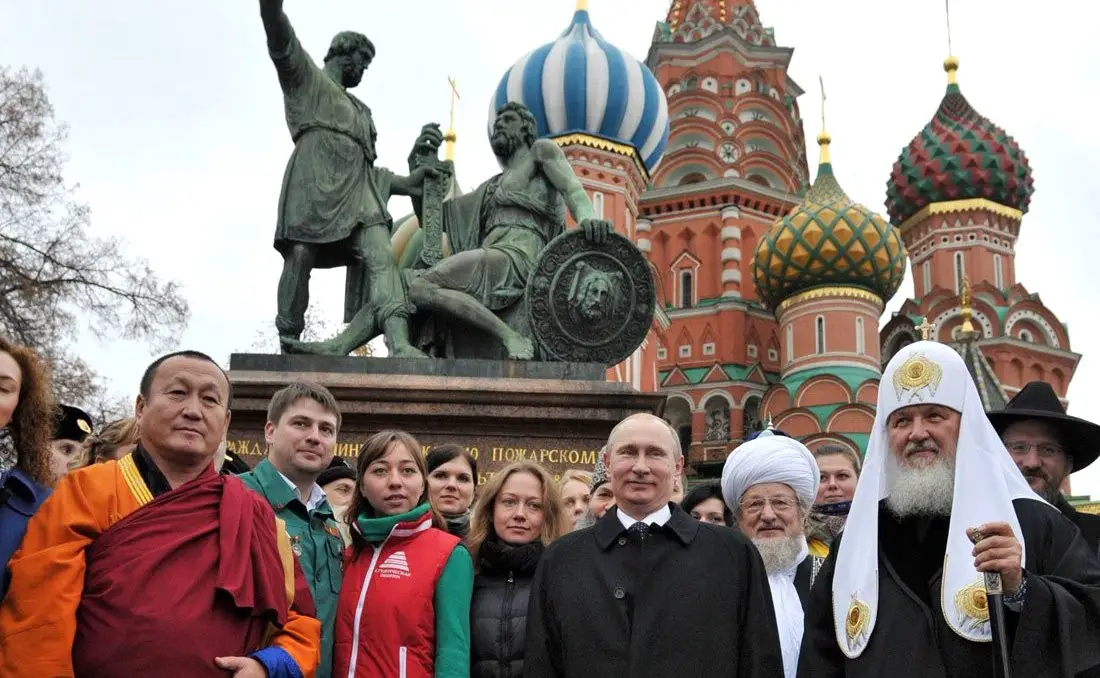
Guide to Religion in Russia
The following resource is meant to quickly but thoroughly overview the subject of religion in Russia. It includes statistics on membership, information on major organizations and institutions, and links to sites offering histories. Mention of religion in other FSU countries is made as well. Your suggestions and comments are always welcome! Contact the Author Table […]

National Unity Day in Russia: Student Observations
National Unity Day is celebrated on November 4th. Russia’s absolute newest holiday, created in 2004, celebrates the liberation of Moscow from Polish troops in 1612 and the subsequent end of the “time of troubles.” This is the first time in nearly 400 years, however, that an official state holiday has marked the occasion, leading many […]

Моя Россия 9: Религия в России – Христианство и язычество
The following is lesson 9 of the Моя Россия advanced Russian lesson series. Note that all bold words and phrases have annotation below. Red words and phrases indicate the subject of this blog entry’s grammar lesson. Asterisks indicate slang. Россия – многонациональное и многоконфессиональноегосударство. Россия – светское государство, а конституция РФ гарантирует «свободу совести, свободу вероисповедания». Федеральный закон «О свободе совести и о […]
More Phrasebooks
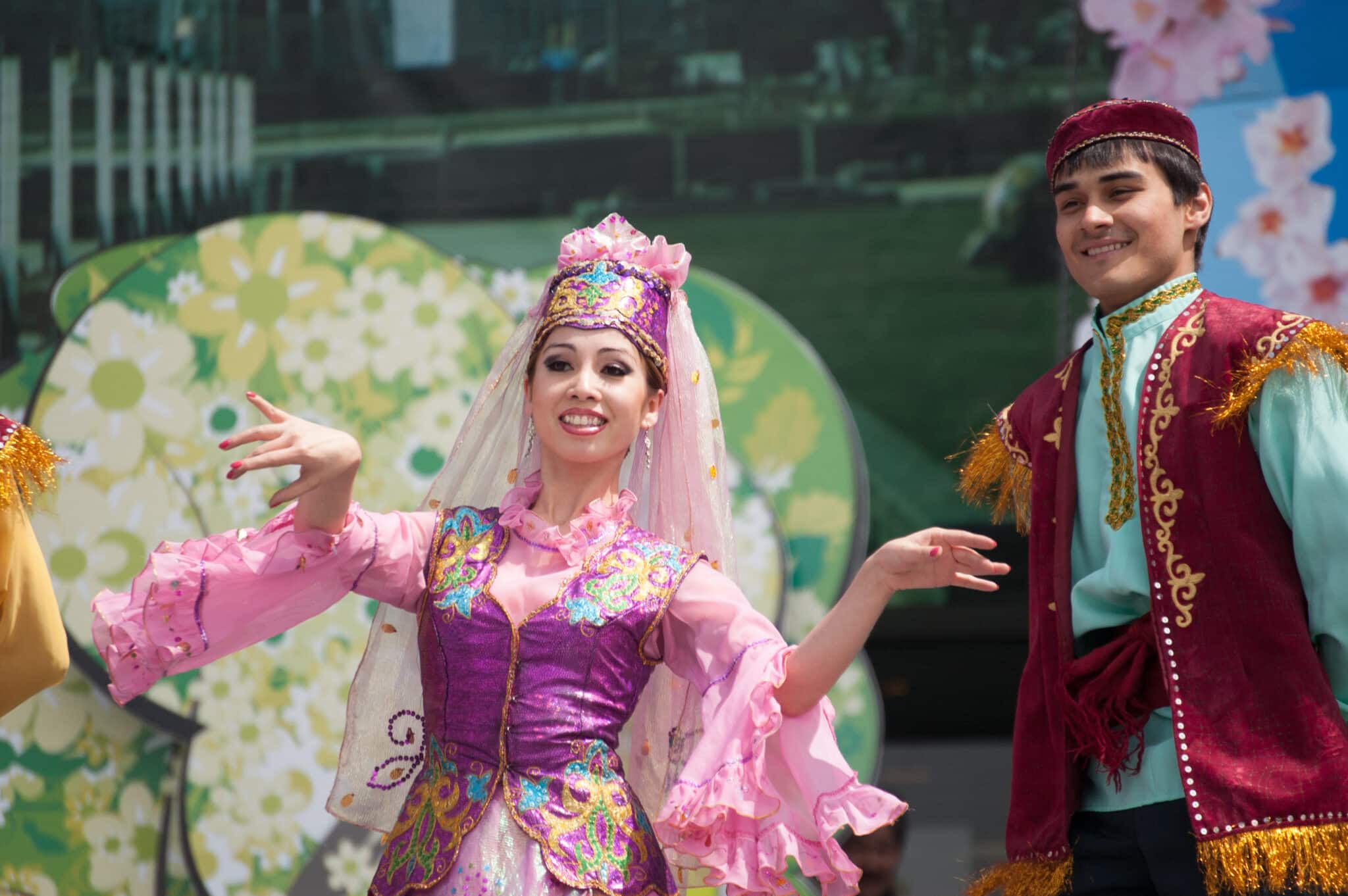
The Talking Kazakh (Qazaq) Phrasebook
The Talking Phrasebook Series presents useful phrases and words in side-by-side translation and with audio files specifically geared to help students work on listening skills and pronunciation. Below, you will find several useful phrases and words. To the left is the English and to the far right is the Latvian translation. In the center column […]
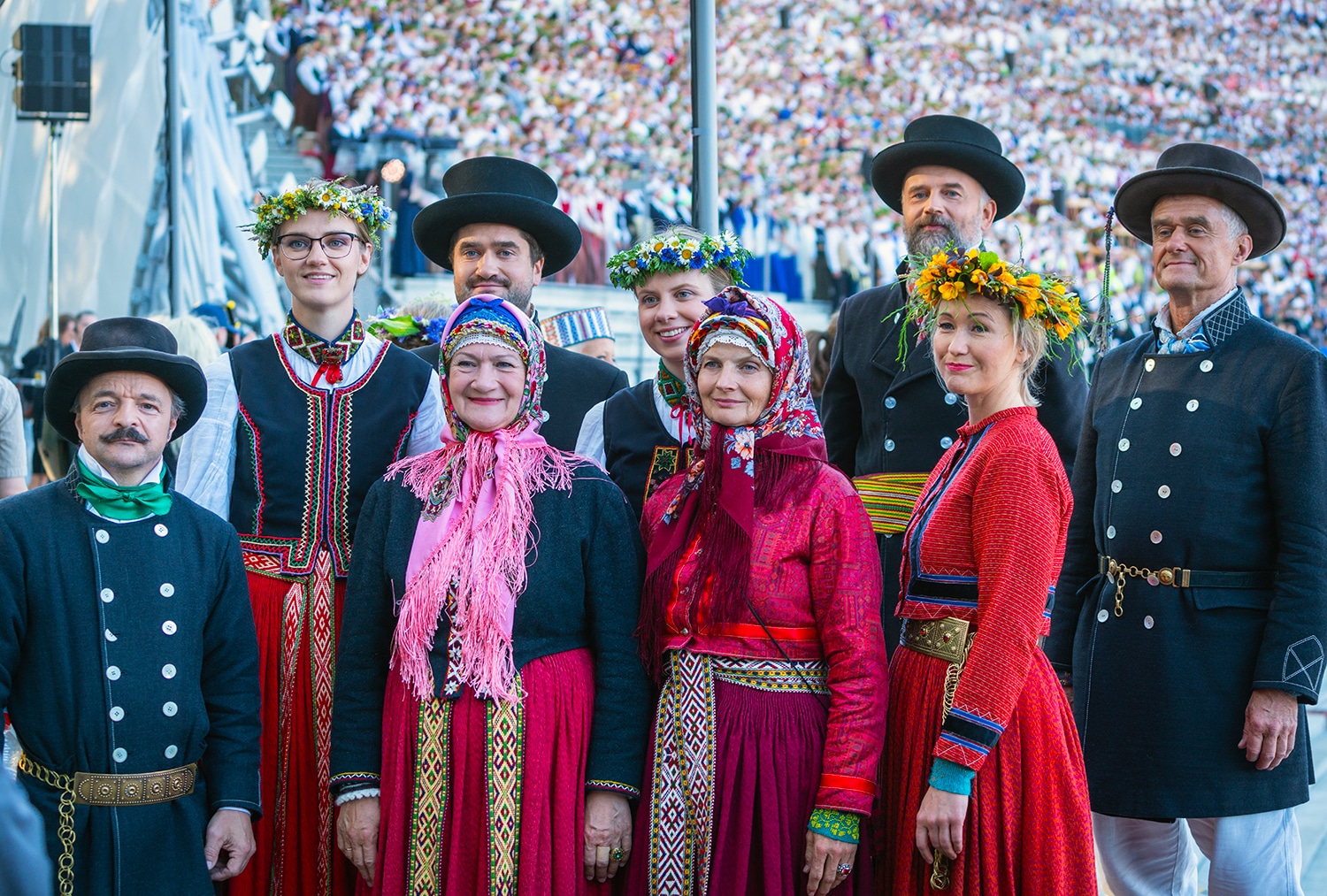
The Talking Latvian Phrasebook
The Talking Phrasebook Series presents useful phrases and words in side-by-side translation and with audio files specifically geared to help students work on listening skills and pronunciation. Below, you will find several useful phrases and words. To the left is the English and to the far right is the Latvian translation. In the center column […]
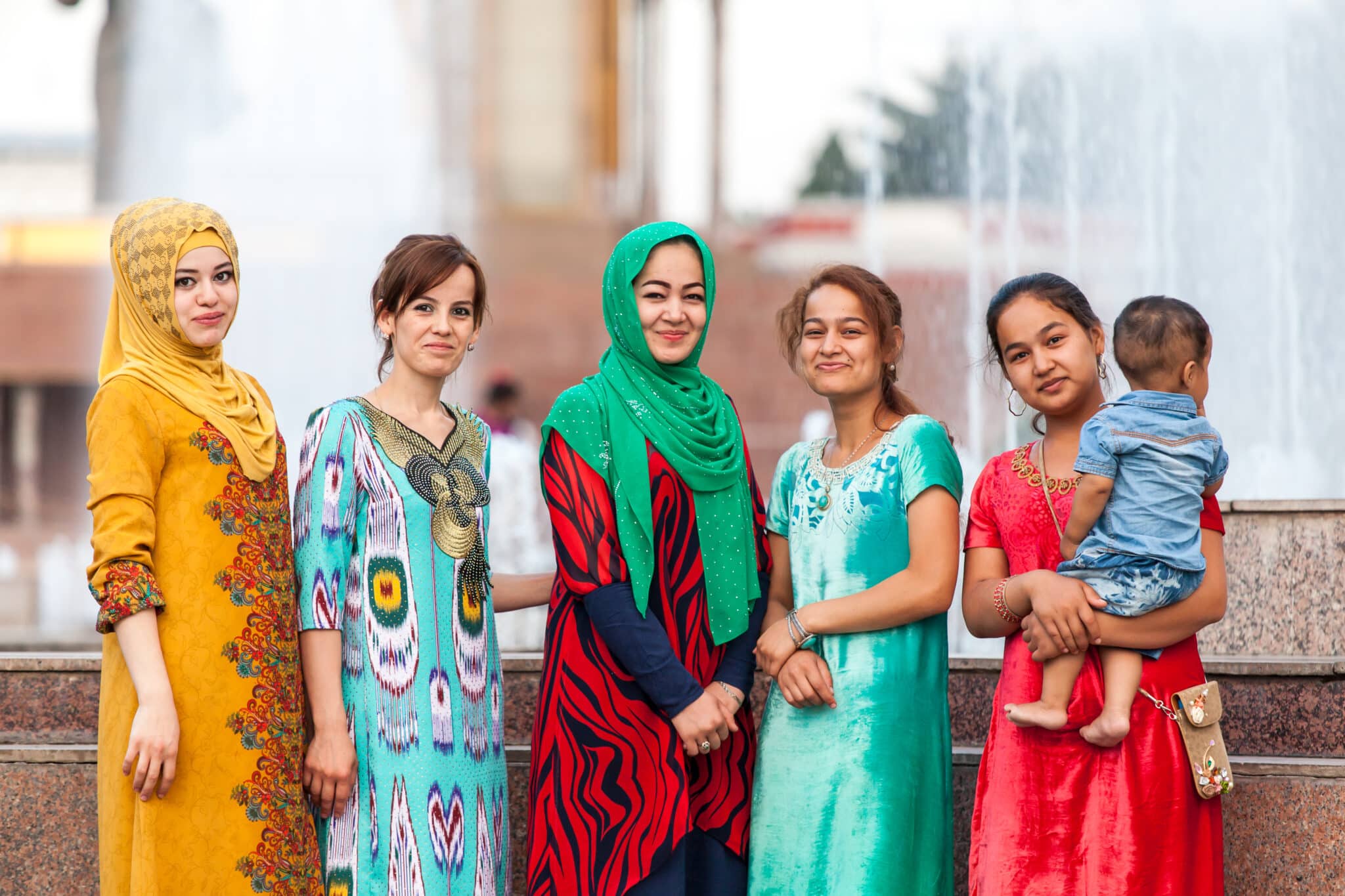
The Talking Tajik Phrasebook
The Talking Phrasebook Series presents useful phrases and words in side-by-side translation and with audio files specifically geared to help students work on listening skills and pronunciation. Below, you will find several useful phrases and words. To the left is the English and to the far right is the Tajik translation. Tajik uses a Cyrillic […]

